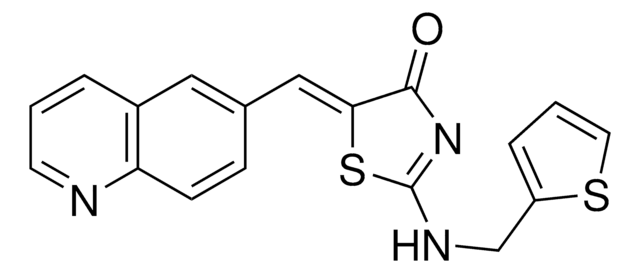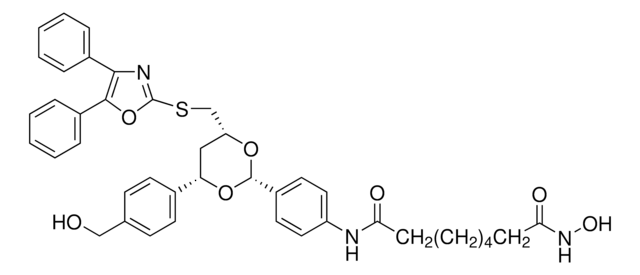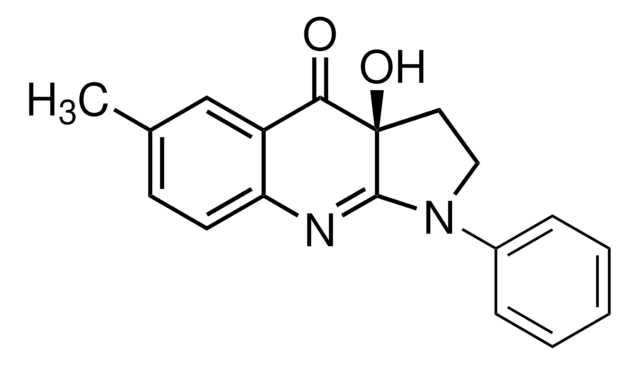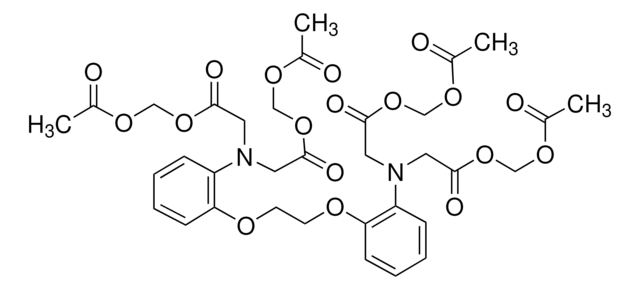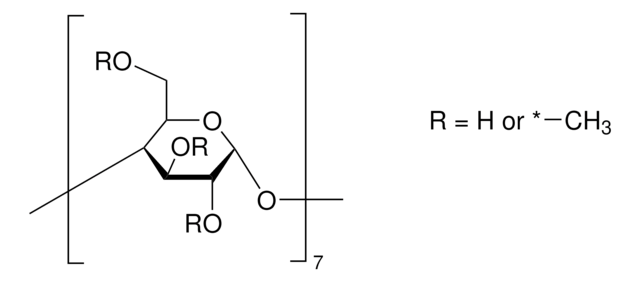250401
Ciliobrevin D
≥99% (HPLC), powder, cytoplasmic dynein inhibitor, Calbiochem®
Synonym(s):
Cytoplasmic Dynein Inhibitor, Ciliobrevin D, 2-(7-chloro-4-oxo-3,4-dihydroquinazolin-2(1H)-ylidene)-3-(2,4-dichlorophenyl)-3-oxopropanenitrile, AAA+ ATPase motor cytoplasmic dynein inhibitor
About This Item
Recommended Products
product name
Cytoplasmic Dynein Inhibitor, Ciliobrevin D, Ciliobrevin D is a cell-permeable, reversible, and specific blocker of AAA+ ATPase motor cytoplasmic dynein. Disrupts spindle pole focusing and kinetochore-microtubule attachment (~10 to 40 µM).
Quality Level
Assay
≥99% (HPLC)
form
powder
manufacturer/tradename
Calbiochem®
storage condition
OK to freeze
protect from light
color
orange
solubility
DMSO: 2.5 mg/mL
shipped in
ambient
storage temp.
−20°C
SMILES string
O=C(C1=CC=C(Cl)C=C1N/2)NC2=C(C(C3=C(Cl)C=C(Cl)C=C3)=O)/C#N
General description
Packaging
Warning
Reconstitution
Legal Information
Storage Class Code
11 - Combustible Solids
WGK
WGK 3
Flash Point(F)
Not applicable
Flash Point(C)
Not applicable
Certificates of Analysis (COA)
Search for Certificates of Analysis (COA) by entering the products Lot/Batch Number. Lot and Batch Numbers can be found on a product’s label following the words ‘Lot’ or ‘Batch’.
Already Own This Product?
Find documentation for the products that you have recently purchased in the Document Library.
Customers Also Viewed
Our team of scientists has experience in all areas of research including Life Science, Material Science, Chemical Synthesis, Chromatography, Analytical and many others.
Contact Technical Service




